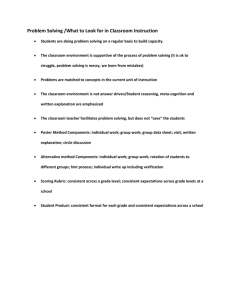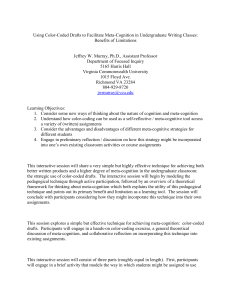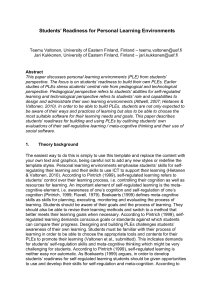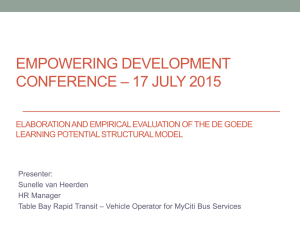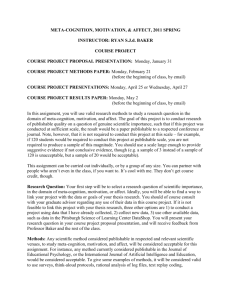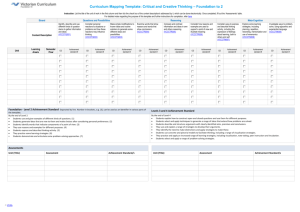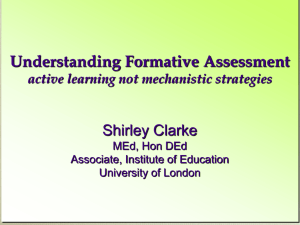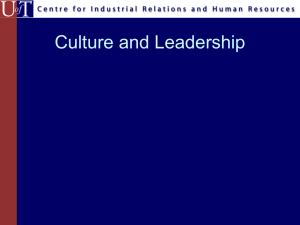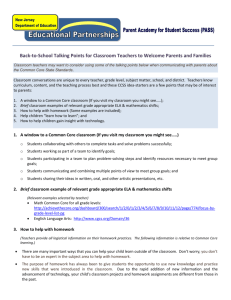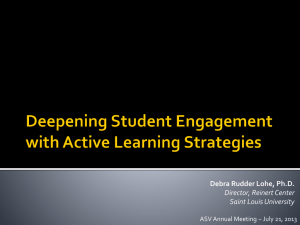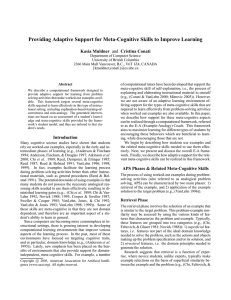Meta-cognition 1
advertisement
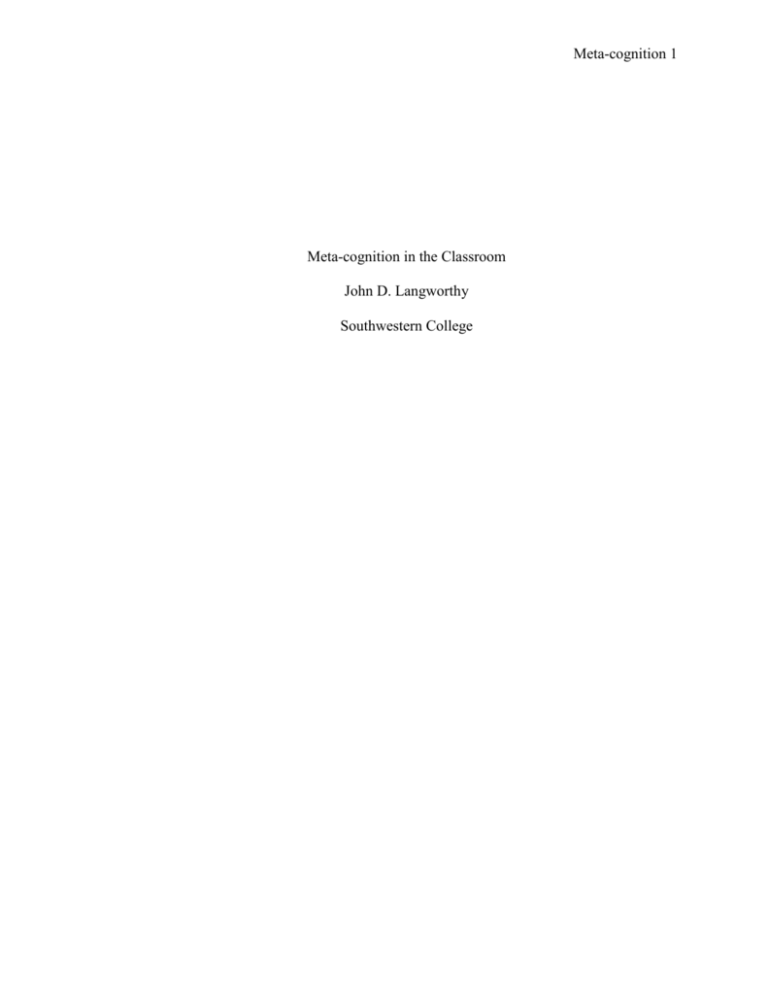
Meta-cognition 1 Meta-cognition in the Classroom John D. Langworthy Southwestern College Meta-cognition 2 Abstract Meta-cognition in the classroom has become a very popular topic in the educational setting. I am very inclined to use activities that develop and sharpen these skills in my classroom. I was unable to discover any significant drawbacks while studying this topic. In fact, I am more of an advocate now that I have researched the topic again. I believe meta-cognitive activities can help the students of any classroom improve their educational achievement. Meta-cognition 3 Meta-cognition is the awareness or analysis of one's own learning or thinking processes. This is a higher level of thought that requires an individual to process how they perform in a learning environment. For example, a student plans how to approach an assignment, while monitoring their comprehension, and evaluating progress until completing the assignment. Students that function at this level possess the ability to overcome obstacles that some learners cannot. An individual who maintains motivation to complete an assignment while being aware of distracting internal or external stimuli is also meta-cognitive in nature. There are some criticisms of meta-cognition; nevertheless, I believe the benefits far outweigh the drawbacks. It is critical for students and teachers to use meta-cognitive abilities for successful learning to take place. Several studies suggest that students who demonstrate a wide range of meta-cognitive skills perform better on exams and work more efficiently. A self-regulated learner will use the proper tool for a job and modify learning strategies and skills based on their effectiveness. These students also identify any problems with the completion of a task, prompting a change in strategy to ensure goal attainment. Ultimately, the highest level of metacognition requires awareness of individual strengths and weaknesses, the tasking, the items or skills available to them, and the ability to reflect on performance. In my classroom, I develop meta-cognitive abilities in my students while exploring three traits: learning styles and abilities, study skills and habits, and test taking strategies. Most students are surprised to discover their primary learning styles. If one does not understand how they learn, then how will they ever be able to reflect on their success? As for study skills and habits, many students work in a counter-productive setting. When a student realizes minimizing internal and external distractions increases efficiency they improve learning. Finally, the biggest issue for many students is test-taking. I have seen nervous students and those who are not fully Meta-cognition 4 prepared, if I can help minimize the nerves and adequately prepare it will pay dividends. In fact, if a student understands and utilizes the first two items, it usually eliminates any test-taking problems. Meta-cognitive activities will improve the dynamics of a classroom and student performance. Meta-cognitive students are able to adapt to almost any learning situation and have the ability to reflect on success and failure. This ability furthers the academic growth and development of a student. Consequently, student performance improves and the classroom becomes a center of learning. The most promising aspect of a meta-cognitive student is their ability to analyze another student as well. When students can help other classmates, it positively impacts the classroom dynamics. One area of concern I researched is students overestimating their capabilities leading to lower actual performance (Gredler, 2002). Miscalculating their perceptions of self-regulated learning strategies leads to lower scores and grades. A recent study found thirty percent of the students studied were inaccurate in their grade expectations and held expectations that were inconsistent with prior achievement (Gredler, 2002). This study adds to the theory that a small percentage of learners may not be able to adequately critique their learning abilities. Another area I found interesting is a study which provided evidence that student motivation should also be recognized as a vital component in a meta-cognitive classroom. The study concluded that student involvement in self-regulated learning is closely tied to students’ efficacy beliefs about their capability to perform classroom tasks and to their beliefs that these classroom tasks are interesting and worth learning (Pintrach & DeGroot, 1990). In other words, students need to have the desire to complete an assignment if they are to be successful in the classroom. Meta-cognition 5 I find meta-cognitive activities to be extremely useful regardless of the studies that find some minor issues with them. I will continue to use these methods of instruction to help foster the academic growth of my students. The benefits of meta-cognition far outweigh the drawbacks. Meta-cognition 6 References Gredler, M. E. (2002, December 1). An exploratory study of academic goal setting, achievement calibration and self-regulated learning.. Journal of Instructional Psychology, Retrieved November 22, 2008, from http://www.thefreelibrary.com/An+exploratory+study+of+academic+goal+setting,+achie vement...-a095148384 Pintrich, P. R. & DeGroot, E. V. (1990). Motivational and self-regulated learning components of classroom academic performance. Journal of Educational Psychology, 82, Retrieved November 22, 2008, from http://www.stanford.edu/dept/SUSE/projects/ireport/articles/self-regulation/selfregulated%20learning-motivation.pdf
